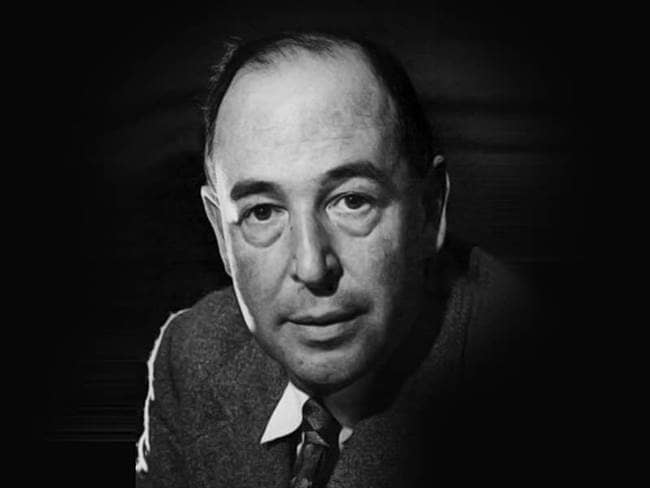It was a wild, windy day, the kind I loved. I peered through the tiny panes of my window at the racing clouds and cavorting trees and felt very left out. I wasn't sure about this place. Music, definitely okay. Father Joseph Warrilow, more than okay. Otherwise monastic life seemed like a gentlemanly version of jail.
All of a sudden, the squeak of sandal on lino, that swoosh of skirts, and there he was in the doorway, ears as big as before, feet as flat--I hadn't exaggerated my image of him at all. He was funny-looking enough to make you smile whenever he made an entrance. Before I could stop myself I was laughing.
"Dear Tony, sorry to be late. I do so love the organ, it's hard to tear myself away. How about a walk? It's wild and windy today, my favorite weather!"
He thrust his arm through mine and off we went down the stairs, out into the enclosure, and through one of the huge gates marked PRIVATE.
A broad earthen path ran beside the church and past a tiny cemetery containing rows of plain stone crosses, then through massive oaks to curve around a great sweep of newly ploughed fields, brown and soft against the wild blue and gray sky, disappearing into a grove of horse chestnuts and dense woods of more oak, beyond which heaved the turbulent, white-capped Solent. Off to the right in a lush sea-level meadow were scattered the ruins of an early 12th-century Cistercian monastery. Where white-robed monks had once tended their ancestors, a flock of sheep chomped on grass rooted in their shepherds' remains.
It took my breath away: the curve of the great path, the contrasts of raw earth against rushing cumulus, of tumbled old stone against tall young grass, of leaf-speckled oaks against the sea. A very different landscape than my placed green-shaded Hertfordshire: this was impeccable and classic, every element of natural beauty in exact harmony, a foretaste of perfection, an amuse-bouche of Paradise. It had the dignity of a mighty painting, but I felt in it and of it. I knew this place. I had read about it in a poem or dreamed it once.
I stopped and he did too, our arms still linked, his eyes doing their signature blink, his rodent nose twitching with pleasure in the swirling air.
"Oh yes, dear, yes yes yes. Whenever I come round this corner, I'm sure I'm seeing it for the very first time!"
I was bit old for the game itself, but no English male worth his salt could pass under a chestnut tree without assessing its conker potential. These trees looked very promising, young and robust. "There'll be some terrific conkers under here in a few months," I said.
There will indeed," he replied: "they give wonderful conkers." He searched the ground as we walked. "There's one!" He picked up a medium-sized nut from under some leaves.
It must have lain in a dry place, for instead of being soft and rotten, it was wizened and hard as a rock.
"A beauty!" He tapped it with a practiced knuckle. "At least a tenner or a twelver."
"But, Father, it's from last year! You can't use that."
The venerable monk shot me a rubbery naughty-boy grin. "Who says I can't?" He pocketed the conker.
We stood arm in arm, still, gazing at the far-off mainland. It seemed much farther than two miles away and getting farther by the minute.
He blinked and closed his eyes meditatively.
"A world away." "I'm not so sure I want to go back, Father Warrilow."
The eyes blinked, the lips pursed. "Oh, but you must, dear."
Suddenly gusts of wind ripped around us, whipping his robes up around his thighs. He yanked his arm from mine, trying clumsily to hold down his skirts. Marilyn Monroe would do much the same over a subway grate in New York City later that year, but she couldn't come close to him in the knobbly-English-knees department.
Finally he got his wayward garb under control, spluttering, "oh my goodness, oh my goodness."
"Well!" he laughed. "Now that you've seen my knees you can hardly call me Father Warrilow."
What should I call you then?"
"Everyone calls me Joe."
A bit radical, I thought. This monk did nothing that other priests did: he talked to me like an equal, not a sinner, and so far had made no mention of that ultimate sanction used by all Catholic adults, Hell. But still. He was a priest.
"How about Father Joe?"
"Father Joe it is!" He retucked his arm through mine and back we went through the wind-whipped woods.
I don't remember everything we talked about that wild spring morning, but it was life-changing in ways I could never have conceived when I'd stood two days earlier churning with fear at the end of the driveway. There was plenty to discover as we ambled down muddy paths, through the meadows of fat cattle, around fields of winter crops, beneath more mighty oaks, circumnavigating Quarr Abbey's extensive farm, all two hundred acres of it, for an hour or more.

